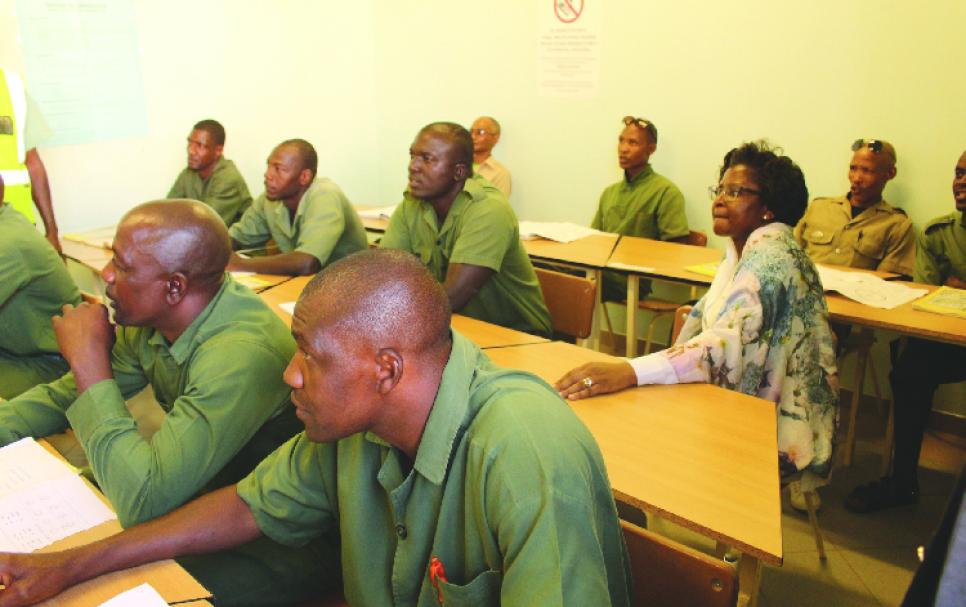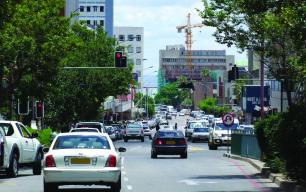When the sentence ends but the punishment continues

By Patience Makwele
The sun beamed bright outside under clear blue skies. He stood at the gates, clutching a small plastic bag of belongings, as the heavy doors groaned open. “Haufiku Johannes, you’re now a free man,” a police guard announced, escorting him into the light.
It had been three years since Haufiku was arrested for robbery and possession of a firearm. Three years of iron beds, cold meals, and time measured not in days but in court records. He had envisioned this moment every day as the day freedom would finally return. Yet as he stepped out, blinking into the heat of the morning, he realised that what lay beyond the gates might be an even harder sentence than the one he had just served.
When I walked out of prison, a lot was in my mind but the biggest thought was where was I going to start,” he recalled. “My family stopped visiting in my second year and being out felt like I was out in the open without a family to comfort me or prepare me for the road ahead,” he said.
He described his life in prison as horrific at the beginning.“Prison is only a nightmare for the first few weeks depending on one’s crime,” he said. “At first I thought I would die, but then I adjusted, made friends and focused on serving my time. Inside, I counted days. Outside, I only count rejection.”
For Haufiku, release was supposed to mean a second chance. However as he boarded a taxi with nothing but his bag and N$200 given to him upon release, reality struck. No job waited. No warm homecoming. No easy forgiveness from family or friends still haunted by the shame of his crime.
“It felt like the world had moved on without me,” he explained. “Everything had changed even the surroundings, and it felt like I was in a foreign country. Even though I came out a changed man, I am still locked in people’s eyes. To them, I will always be a dangerous criminal or thief.”
He explained that every application letter he wrote was shadowed by his past. Employers glanced at his criminal record and shook their heads. Old neighbours whispered behind his back. Some even warned others to lock their doors when they saw him.
Haufiku’s story is not an isolated one. Across Namibia, hundreds of men and women walk out of prison gates each year only to discover that the hardest sentence begins after release.
Systemic Struggles
According to the Namibian Correctional Service (NCS) Commissioner General, Raphael Hamunyela, the country is facing significant challenges in preparing inmates for life after prison.
“Our biggest challenge is the lack of financial resources,” Hamunyela said. “We want to give ex-inmates opportunities, but without halfway houses, vocational support, and partnerships, reintegration is limited. Unemployment is already high in Namibia, and for someone with a criminal record, the barriers are even greater.”
He noted that while officers work with inmates inside prison to provide training and skills, there is little they can do once an individual is released. “When they go back into society, many are rejected. Without support, some find it easier to return to crime because in prison, at least, they feel accepted,” he explained.
Hamunyela urged communities to take a more active role in reintegration, especially traditional authorities in rural areas. “We cannot do this alone,” he said. “I urge communities to come together and help us tackle rehabilitation. Traditional leaders in particular can add value as they are always present to guide, unlike correctional officers who can only supervise occasionally.”
Prison Ends, But Stigma Lives On
For many social workers, the failure is not only in resources but also in mindset.
“Our prisons may release people, but society still keeps them locked up,” said a social worker from the Namibian Correctional Service (NCS) working with former inmates. “Without psychosocial support and employment opportunities, many ex-inmates are trapped in a cycle of rejection. Reintegration cannot succeed if the community continues to see them only through the lens of their crimes.”
People Can Change, If You Let Them
Some, however, manage to turn their lives around. “I also walked out of those gates with nothing but a bag and a record,” said a former inmate who now runs a small community project for Linyanti in Zambezi region. “I was lucky to meet people who believed in me. Not everyone gets that. Society has to realise that people can change, if you give them a chance.” Adding, “when one is behind bars, they are given a chance to reflect and seek redemption which is only possible when society accepts them.”
A Community Caught Between Fear and Forgiveness
Ordinary citizens admit they often feel conflicted. “We are scared sometimes because we don’t know if someone has truly changed,” said a community member who spoke on condition of anonymity. “But we also know that without support, rejection will only push them back into crime. As a community, we must find a balance between protecting ourselves and giving second chances.”
A Freedom Still Out of Reach
For Haufiku, however, the promises of support feel far away. Each day is a reminder that while the prison gates may have opened, society’s doors remain firmly shut. “I paid for my mistake,” he said quietly. “But it feels like I am still serving time.” His words echo a deeper truth: in Namibia, when society refuses to forgive, freedom is never complete.
- 8 views










Comments